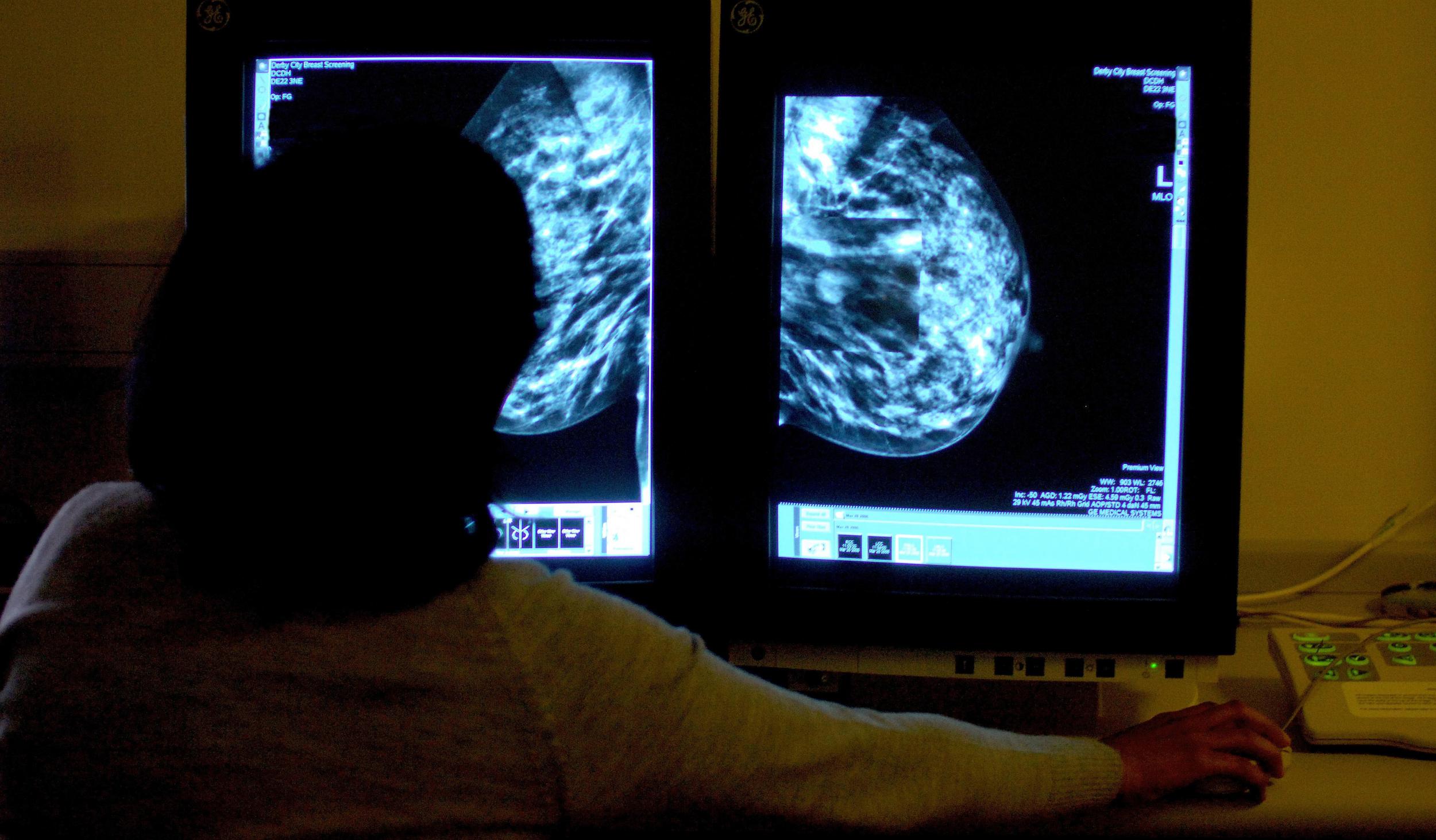Artificial intelligence (AI) trained on images from routine breast screening appointments could help predict heart problems in women, a study has found.
Experts suggest the technology could offer a cost-effective, ‘two for one’ opportunity to screen women for both breast cancer and heart risks simultaneously.
In the UK, anyone registered with a GP as female will be automatically invited for a breast screening – known as a mammogram – every three years between the ages of 50 and 71. During these appointments, two X-rays are taken of each breast to identify any signs of cancer.
Researchers in Australia used mammogram images from 49,196 women enrolled on the Lifepool cohort registry, an Australian breast cancer research initiative, to develop an AI algorithm.

The average age of the group was 59, with a third taking medication for high cholesterol and 27 per cent for high blood pressure.
The aim of the technology was to predict the risk of major cardiovascular disease, such as heart attacks and strokes, over 10 years.
“Many women undergo screening mammography in midlife when the risk of cardiovascular disease rises,” researchers said.
“Mammographic features such as breast arterial calcification and tissue density are associated with cardiovascular risk.
“We developed and tested a deep learning algorithm for cardiovascular risk prediction based on routine mammography images.”
Main symptoms of breast cancer in women
NHS
Symptoms of breast cancer in women may include:
- a lump, or swelling in your breast, chest or armpit
- a change in the skin of your breast, such as dimpling (may look like orange peel) or redness (may be harder to see on black or brown skin)
- a change in size or shape of 1 or both breasts
- nipple discharge (if you are not pregnant or breastfeeding), which may have blood in it
- a change in the shape or look of your nipple, such as it turning inwards (inverted nipple) or a rash on it (may look like eczema)
- pain in your breast or armpit which does not go away – breast pain that comes and goes is usually not a symptom of breast cancer
During an average tracking period of almost nine years, 2,383 women had a heart attack, 731 had heart failure, and 656 had a stroke.
The study, published in the journal Heart, found the algorithm performed just as well as other traditional calculators that use age and clinical variables to assess heart risks.
Researchers added: “A deep learning algorithm utilising routine mammograms and age shows promise as a cardiovascular risk prediction tool.
“Mammography may offer a cost-effective ‘two for one’ opportunity to screen women for both breast cancer and cardiovascular risk, enabling broader cardiovascular risk screening for women than is currently achieved.”
How AI is saving the NHS more than £1.5m a day
Health misinformation on social media could lead to a ‘sicker UK’, experts warn
AI models are struggling to identify hate speech, study finds
Fake AI images stoking anti-immigration protests outside hotels
Powerful drugs given to dementia patients outside of guidelines, study finds
Study finds cystitis could be an indicator of this type of cancer







